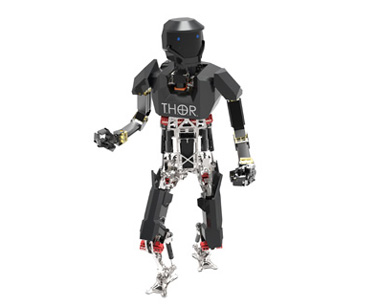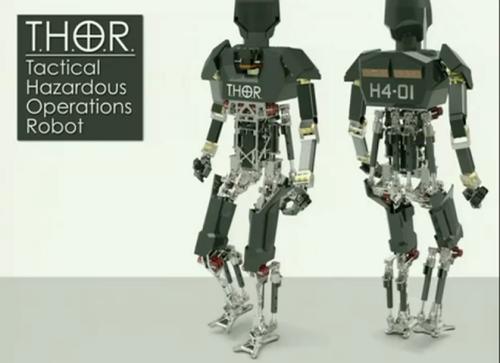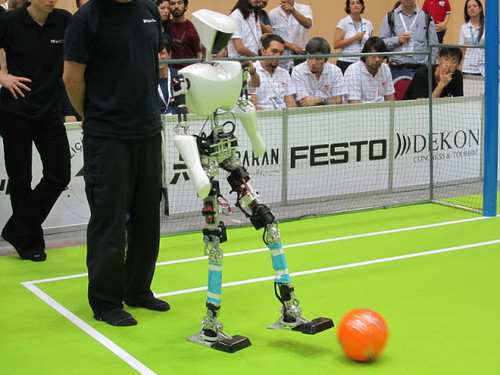RoMeLa’s Entry Into The DARPA Robotics Challenge (+VIDEO)

Dennis Hong, the director of the Robotics & Mechanisms Laboratory RoMeLa at Virginia Tech University, also called “the Leonardo da Vinci of robots”, has presented a research that centres on robot locomotion and manipulation, autonomous vehicles and humanoid robots. He is the inventor of a number of novel robots and mechanisms, including the ‘whole skin locomotion’ for mobile robots, a unique three-legged waking robot STriDER, an air-powered robotic hand RAPHaEL, and the world’s first car that can be driven by the blind. Dr Hong introduces RoMeLa’s entry into the DARPA Robotics Challenge (DRC) with their Tactical Hazardous Operations Robot (T.H.O.R.). The adult-sized T.H.O.R. robot must enter a vehicle, drive it, and then exit the vehicle, walk over rubble, clear objects blocking a door, open the door, and enter a building. The robot must also be able to accomlish different tasks under a set time limit, such as visually and audibly locate and shut off a leaking valve, connect a hose or connector, climb an industrial ladder and traverse an industrial walkway, use a power tool and break through a concrete wall. The team also plans to design a second robot, THOR-OP, an Open Platform robot for possible commercial use.
Via:33rdsquare.com


| Tweet |











